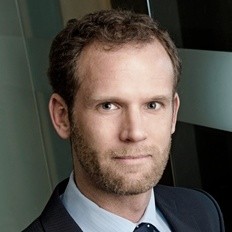A Cell Therapy Company's "Unpopular" Internal Manufacturing

By Louis Garguilo, Chief Editor, Outsourced Pharma

“As unpopular as this may be with some of your readership, I wouldn't do it any other way. I think it's important to own, control, have complete oversight and a seamless process at an internal manufacturing facility with your own team.”
--- Brian Culley, CEO,
Lineage Cell Therapeutics, Inc.
No worries, CEO Culley. Our readers are open to “unpopular,” even provocative stances.
Please, go on.
“This is in part because we are talking about cells; they are so sensitive to so many variables. It’s not a project where you hand it over to an external organization, even one with abundant resources, and say ‘I want you to make this, I need kilos, and it has to be cost effective.’
“The development of cells – the control of a process for a differentiation protocol [more on this later] is difficult. It really is hard to find a CRO or CDMO with the specific experience and capabilities we need.
“I don’t mean this negatively, but it’s also a matter of commitment to the program by external partners compared with your internal ownership of each of those developmental steps by employees.”
Fully understandable.
And time for my “On the other hand ...”
We’ve witnessed an impressive increase in cell (and gene) therapy outsourcing resources, and CROs/CDMOs adding skilled workers, developing capabilities, funding new capacity, and increasingly, receiving positive feedback from the companies they are striving to serve.
So within this ‘two-sides to outsourcing’ discussion, it’s valuable to understand the history and philosophy of a company such as Lineage. At times, we’ll discover, internal manufacturing arrives with company formation.
In The Beginning
Lineage went by a different name (BioTime) and was for all intents and purposes a different company when Culley came in as CEO in 2018 to evolve it from what was “originally established during first-generation cell therapy endeavors.”

That reinvention “leaned into a new commitment to directed differentiation,” a technology resting on a proprietary platform for the development and manufacture of “specialized, terminally-differentiated human cells from pluripotent and progenitor-cell starting materials.”
Diifferentiated cells are developed to replace or support cells that are dysfunctional or absent due to degenerative disease or traumatic injury. Other cell types can be administered as a means of helping the body mount an effective immune response to cancer.
“Manufacturing for us,” Culley says, “is fundamentally what I like to more easily describe as creating replacement tissues or cells.”
His facility – independently named Cell Cure – is located in Israel. (Lineage headquarters is in Carlsbad, California). It consists of two cGMP labs (Culley says that’s because batches can take one to three months to produce, and having two GMP suites is important for parallel manufacture of clinical material), and currently employs ~60 professionals.
Years prior, Cell Cure began to focus on a breakthrough in cell-therapy research by Prof. Benjamin Rubinoff of the Hadassah University Medical Center and Hospital in Jerusalem. Rubinoff discovered a method to manufacture retinal pigment epithelium (RPE) cells from a stem cell.
The technology caught the eye of Lineage in California, who over time acquired a 95% controlling interest in the facility – and ownership of the pluripotent stem cell technology.
“The acquisition was driven by the potential for his invention – the recipe by which you can make pure populations of RPE cells and deliver them to the eye to treat one of the leading causes of blindness,” says Culley. And also by the guiding principle, “If you can't make it cleanly, reproducibly, and at scale, you don't have a product.”
(If readers are wondering, Cell Cure/Lineage also works with other developers, see part one.)
Lineage “seriously invested” in that technology and manufacturing, and in 2021 the investments produced a nearly $700 million “biobucks license deal” with Roche to continue the development of Lineage’s leading eye drug in early clinical trials. “They are the number one ophthalmology company in the world,” Culley proudly says of that partnership.
Clinical Data And Manufacturing
For deals such as that, and for his overall business model, Culley says owning the manufacturing facility where the product was developed, and having the acquired and continuing knowhow available internally – as opposed to at a CDMO – is key.
As key as the emerging clinical data, he believes.
No doubt, he adds, the deal was “in part because of the solid clinical data we generated in a phase one clinical trial,” he says, “but it was also very much because of our manufacturing capabilities.”
“Today, I think manufacturing capability is one of the plagues of cell therapy,” he then interjects.
“The clinical data can be interesting or evocative, but not yet supported by commercially viable manufacturing, by the proof of production, or of adequate controls. Yes, you need both – clinical data and manufacturing – and perhaps that’s why there are so few deals like the one we have with Roche.”
Lineage was wise to both invest in a technology and acquire the manufacturing facility where it was being implemented. That recognition of the criticality of manufacturing for advancing cell-therapy research, Culley says, “is really our history at Lineage.”
An Expanding Promise
Now the company has expanded to spinal cord cells, dendritic cells, auditory neurons, and photoreceptors. As many readers may know, this is the manifestation of the promise and power of PSCs.
“We turn them into five different cell types,” Culley says. “Each of those recipes has to be established, and you have to be able to generate your commercially viable manufacturing process before you’re in the clinic.”
To support this additional activity, the company is hiring. “We’re increasing in size and scope, and continuing to learn and reinvest in how we manufacture these cells, so we will always maintain exquisite control over our products,” he explains.
Cell-therapy start-ups branch out from unique, early shoots of research and development, but are quickly met with a variety of challenges. More often than not, it is outsourcing, and partnerships with contract organizations, that serves as the lifeblood for these cell-therapy sponsors.
But as Culley has explained, there can be alternatives for cell-therapy developers to consider. He's certainly not anti-outsourcing, but he is pro-manufacturing.
